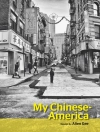The study of world literature is on the rise. Until recently, the term ‘world literature’ was a misnomer in comparative literature scholarship, which typically focused on Western literature in European languages. In an increasingly globalized era, this is beginning to change. In this collection of essays, Zhang Longxi discusses how we can transcend Eurocentrism or any other ethnocentrism and revisit the concept of world literature from a truly global perspective. Zhang considers literary works and critical insights from Chinese and other non-Western traditions, drawing on scholarship from a wide range of disciplines in the humanities, and integrating a variety of approaches and perspectives from both East and West. The rise of world literature emerges as an exciting new approach to literary studies as Zhang argues for the validity of cross-cultural understanding, particularly from the perspective of East-West comparative studies.
Daftar Isi
Introduction
1. Crossroads, Distant Killing, and Translation: On the Ethics and Politics of Comparison
2. The Complexity of Difference: Individual, Cultural, and Cross-Cultural
3. Difference or Affinity? A Methodological Issue in Comparative Studies
4. Heaven and Man: From a Cross-Cultural Perspective
5. The True Face of Mount Lu: On the Significance of Perspectives and Paradigms
6. History and Fictionality: Insights and Limitations of a Literary Perspective
7. In Search of a Land of Happiness: Utopia and Its Discontents
8. Qian Zhongshu and World Literature
9. The Poetics of World Literature
10. The Changing Concept of World Literature
Bibliography
Index
Tentang Penulis
Zhang Longxi is Chair Professor of Comparative Literature and Translation at the City University of Hong Kong. He is the author of several books, including
Unexpected Affinities: Reading across Cultures and
Allegoresis: Reading Canonical Literature East and West.












